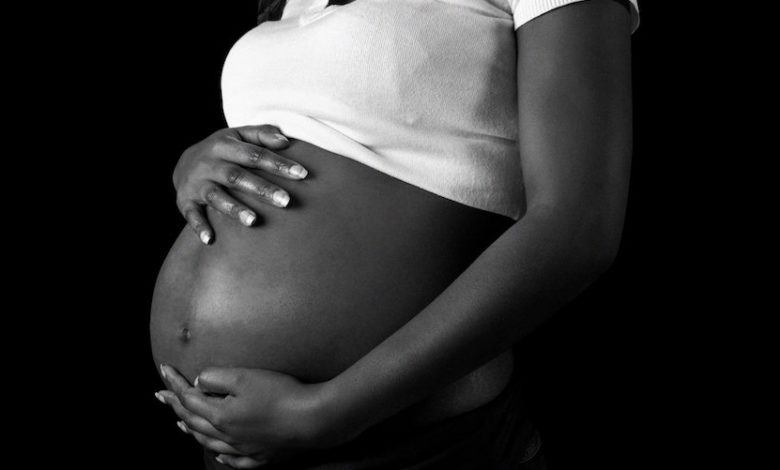Mat North expecting mothers turn to traditional mid-wives as Covid-19 restrictions ground them

By Judith Sibanda
The lives of thousands of pregnant women and their unborn children are in danger across rural Matabeleland North Province as the national lockdown to control the spread of coronavirus has made health centres inaccessible.
Zimbabwe has been under Covid-19 lockdowns since end of March last year and the restrictions have, however, come with unintended consequences as expectant mothers especially in remote areas like Nkayi, Hwange and Binga no longer have access to prenatal care, which put their lives and those of their unborn babies at risk, health activists said.
Fungisai Sithole from Citizen Health Watch said her organisation was receiving reports that pregnant women were not only failing to access prenatal care services, but were also struggling to buy materials to prepare for the birth of their children as public transport was grounded.
“Women and their unborn children are at risk especially those from rural areas, the underprivileged and those with complications,” Sithole said.
“Reports that we get is that pregnant women are not only stranded due to lack of delivery facilities but food, medicine and clothing for preparation for their babies due to travel restrictions and some are often turned away whenever they attempt to travel.”
“If this is not addressed quickly, it could defeat government’s efforts to prevent deaths.”
Itai Rusike, the Community Working Group on Health executive, shared similar sentiments adding that even the lockdowns to slow down the spread of Covid-19 meant well, the implications have been felt mostly by expecting mothers and their unborn children.
Rusike said the Covid-19 certificate requirement in hospitals shunned the expecting mothers more as they did not have funds to conduct the tests.
“What we are seeing is that the lockdowns have further disrupted access to health care services especially for the expecting mothers and the under five as these are the general majority patients who visit most health care facilities,” Rusike said.
“With Covid-19, it is now a requirement for everyone who visit a health facility to have Covid-19 negative certification, and what we are seeing is that without Covid-19 certificate, the nurses are not comfortable attending clients who does not have those certificates and that has created an obstacle in terms of access to health services for the pregnant women especially looking at that for one to have Covid-19 certificate you need to pay not less than US$ 50 so the cost element has become an additional huge barrier to the majority of our mothers whom a majority of them do not have medical cover for them to have access to these highly punitive certificates.”
Zimbabwe is among countries that have a very high maternal mortality ratio with 458 deaths per 100 000 live deaths as of 2017.
The country had, however, gradually reduced the maternal mortality from 530 deaths per 1000 000 live births recorded in 1998.
Miriam Ndlovu from Sivomo village in Nkayi, who had registered for her child to be delivered at the district hospital (about 30 kilometres away) early next month said it would no longer be possible as there was no public transport in the area.
“We have a number of elderly women who have helped many women to give birth in this village and I will have to approach them when the time comes even though I know it’s risky,” Ndlovu said.
“Buses were grounded last month and this means that I cannot travel to Nkayi District Hospital.
“I am scared because in 2011 I had to be transferred to Mpilo Hospital in Bulawayo for a caesarean operation due to complications during the birth of my last born child.
“I don’t know how my other children are going to survive if I am to die while giving birth.”
Ndlovu’s story would resonate with many other pregnant women in Matabeleland North province, which has a poor road network and health centres are far spaced.
A nurse at Tsholotsho District Hospital in Matabeleland North province said more women in the area were now being forced to deliver in unsafe environments, where they are prone to infections and have limited options if complications arose.
The nurse said traditional midwives often conducted deliveries without sundries, drugs and sanitisers.
A traditional midwife who identified herself as Gogo MaZimbili from Nkayi said she had assisted at least twenty women give birth in her village since the lockdown began, which she said was an unusually high number.
She said under normal circumstances she can go for two months without helping a woman deliver.
Gogo MaZimbili said she was grateful that none of the women developed any complications while giving death as she would not have had the means to take them to hospital.
The 72-year-old widow said she helped many women to deliver over the years, including her daughter in-laws as many cannot afford going to hospital, and paying the bills.
She charges a goat for every delivery, which can be paid over a period of time.
She says she had set aside a hut meant for deliveries, and normally does the process without protective clothing such as gloves, hand caps and for clipping the umbilical cord, she uses a normal peg to hang clothes.
Gogo MaZimbili said although she was afraid that she might contract the coronavirus, she had no choice but save fellow villagers from death.
According to the United Nations Office for the Coordination of Humanitarian Affairs (OCHA), outpatient consultations at public hospitals in Zimbabwe declined by 36 percent between April and July last year compared to the same period in 2019.
Sithole said pregnant women also faced the danger of dying at home due to other complications that include excessive bleeding.
She said the outbreak of the coronavirus had also added more pressure on a thinned out health care system, which already struggles to provide adequate services to protect pregnant women.
A doctor in the province said although maternity wards at hospitals remained separate from dedicated wards to treating coronavirus patients, the health institutions’ staff had become over overstretched.
He said expectant mothers that made it to the hospitals were still exposed to coronavirus as health workers lacked access to personal protective equipment (PPE).
Munekayi Padingani , the Matabeleland North Provincial Medical Director in Health and Child Care ministry, admitted that expectant mothers could fail to access health care centres during the lockdown.
“We are aware of such challenges and many more in communities, and this is the reason why we have started mobilising our health workers to do one on one visits to our patients in their villages,” Padingani said.
“Pregnant women should find means of visiting our hospitals at least two weeks before delivery, that way we reduce martenal mortality death rates.
President Emmerson Mnangagwa set the current lockdown to end today, but there is a likelihood the restrictions will be added as health experts say the coronavirus outbreak is still in its infancy in Zimbabwe.





